Results for Publications tagged: Climate
-
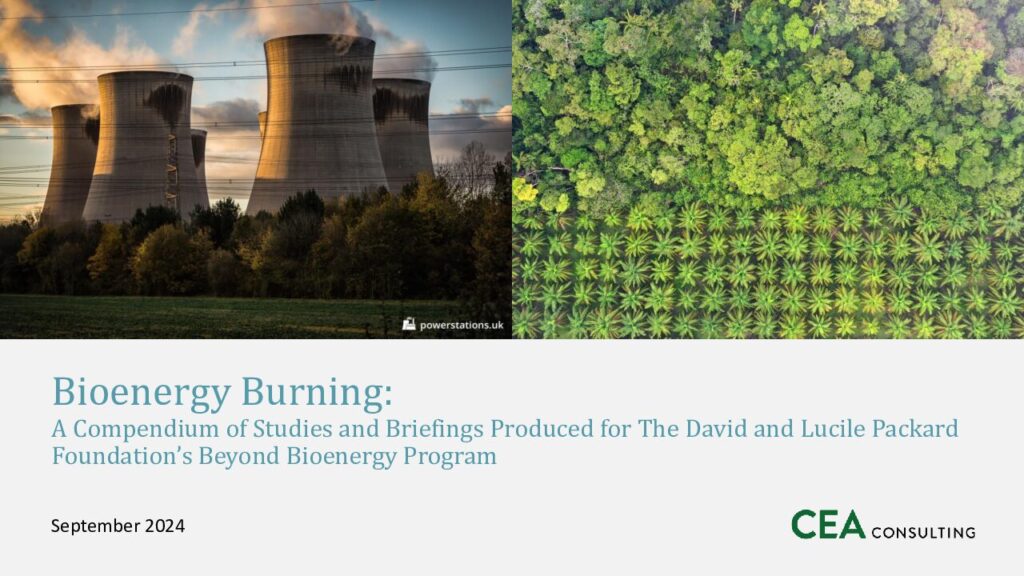
The David and Lucile Packard Foundation
Bioenergy Burning: A Compendium of Studies
This document is a compendium of various written products CEA has produced for The David and Lucile Packard Foundation’s Beyond Bioenergy strategy over the past five years. The information includes: a briefing presented on the current trends, threats, and opportunities presented by bioenergy; a primer on bioenergy and its economics and emissions profile; an analysis to quantify the emissions footprint of bioenergy; and high-level findings from CEA’s 2023 mid-term review of the 2020-2024 Beyond Bioenergy strategy.
-
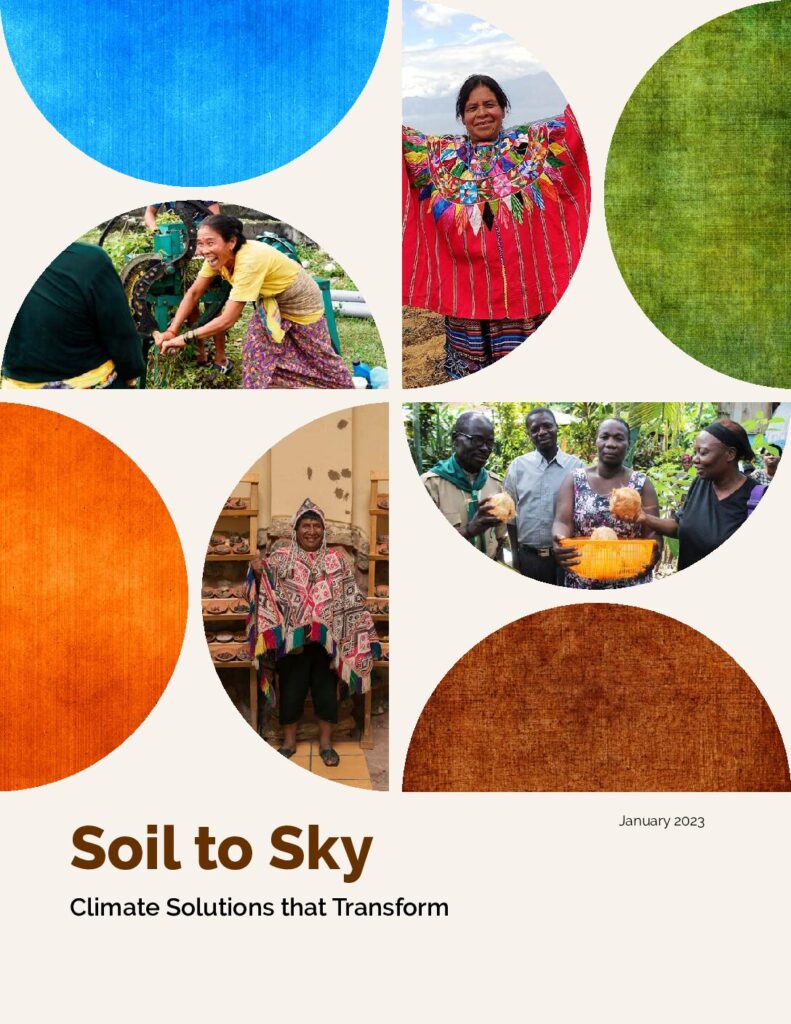
CLIMA Fund
Soil to Sky: Climate Solutions that Transform
This report synthesizes evidence of how grassroots movements successfully mitigate climate change, specifically in the food and energy sectors. This report was prepared by CEA Consulting with support from Gopal Dayaneni at the request of the CLIMA Fund, a funder collaborative comprised of four public foundations: Global Greengrants Fund, Grassroots International, Thousand Currents, and the Urgent Action Fund for Women’s Human Rights. The report seeks to spark inspiration and reflection within the climate funding community by: 1) lifting up effective grassroots climate solutions shifting food and energy systems, and 2) providing recommendations on who, how, and what to fund for durable and transformative change.
-
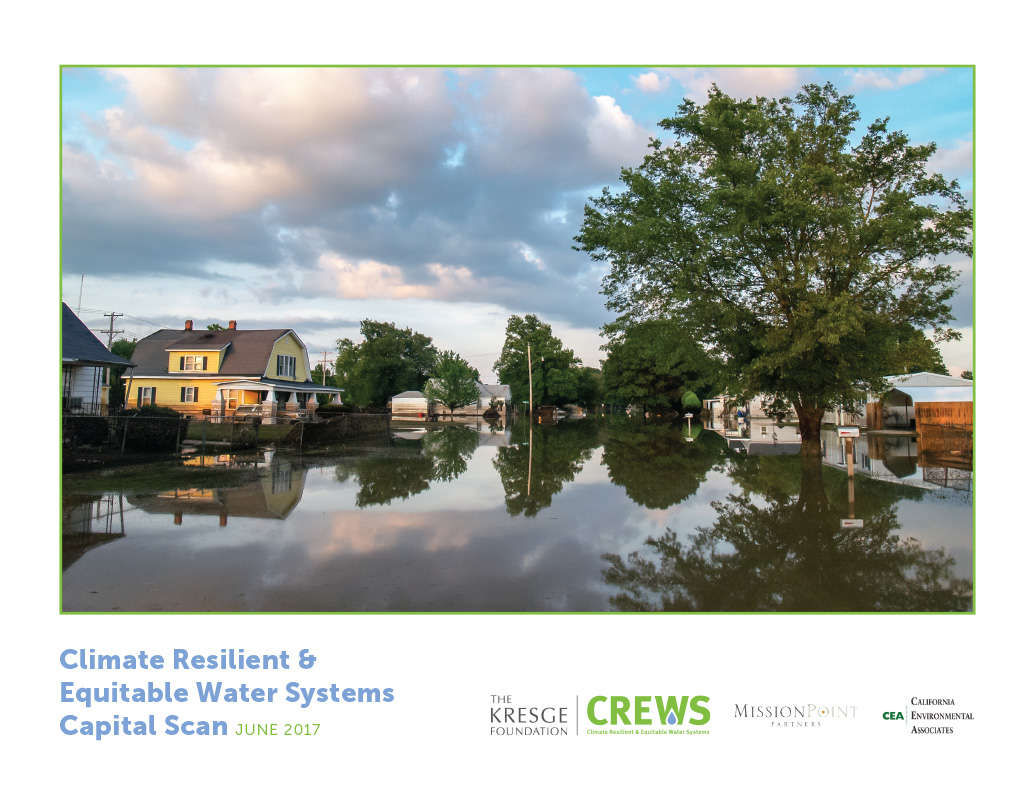
The Kresge Foundation
Climate Resilient & Equitable Water Systems Capital Scan
In partnership with Mission Point Partners, CEA assessed opportunities to invest philanthropic and impact capital toward solutions to address climate-related impacts on water systems, enhance climate resilience, and provide safe, healthy, affordable water for all people.
-
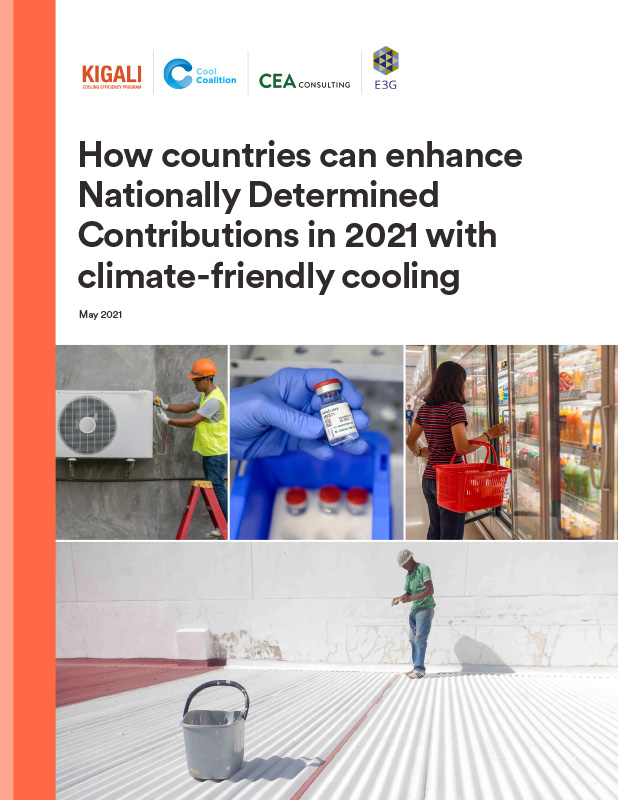
Clean Cooling Collaborative
How countries can enhance Nationally Determined Contributions in 2021 with climate-friendly cooling
This paper categorizes actions that can be taken to enhance NDCs with climate-friendly cooling, summarizing the work being done in 10 countries, as well as signposting how an additional 45 countries have included climate friendly cooling in their enhanced NDCs.
-
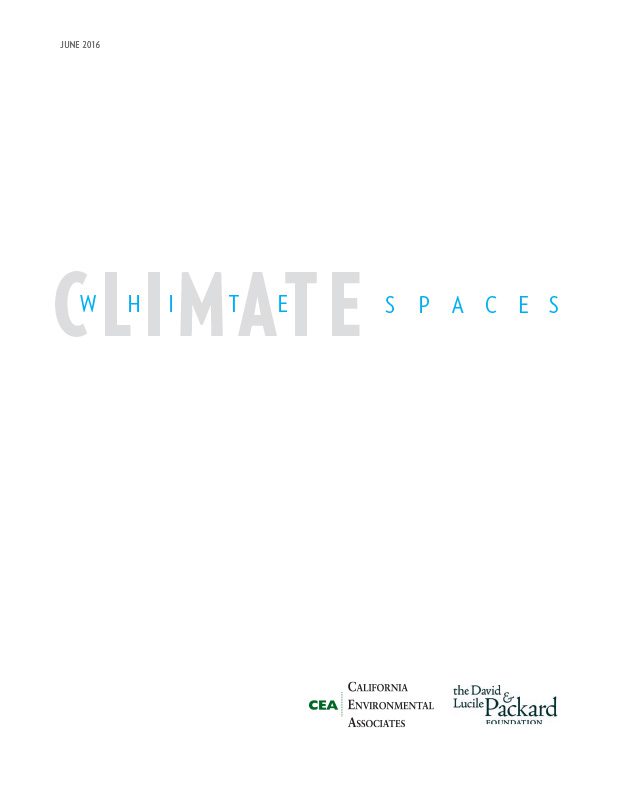
The David and Lucile Packard Foundation
Climate White Spaces
Recognizing the growing urgency of climate change, the Packard Foundation commissioned CEA to conduct interviews with several dozen climate experts in the summer of 2015 to identify additional promising areas for philanthropic work.
The purpose of these conversations was to develop a general sense of whether there are significant “white spaces,” or strategic gaps, within the climate mitigation field. The report is a high level, public synthesis of those conversations with experts.
This analysis was ultimately used to inform the foundation’s internal deliberations on how to promote innovation and breakthrough strategies in the climate response, and the findings informed the creation of the Climate Breakthrough Project, an initiative launched in 2016 by the Packard Foundation in collaboration with the Oak and Good Energies foundations.
-
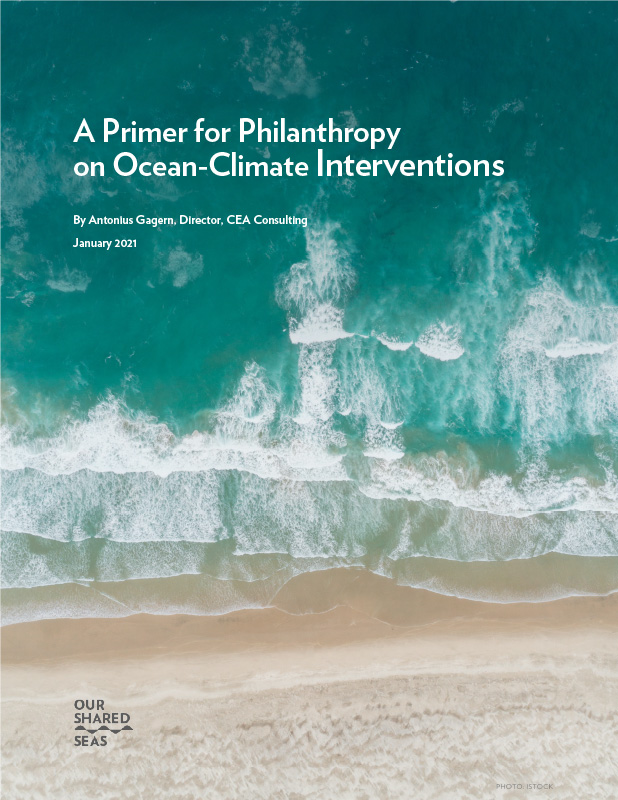
Oceankind
A Primer for Philanthropy on Ocean-Climate Interventions
The marine conservation community has an important role to play in shaping a robust response to climate change. This primer provides a map of ocean-climate interventions, categorized by mitigation, sequestration, and adaptation efforts.
-
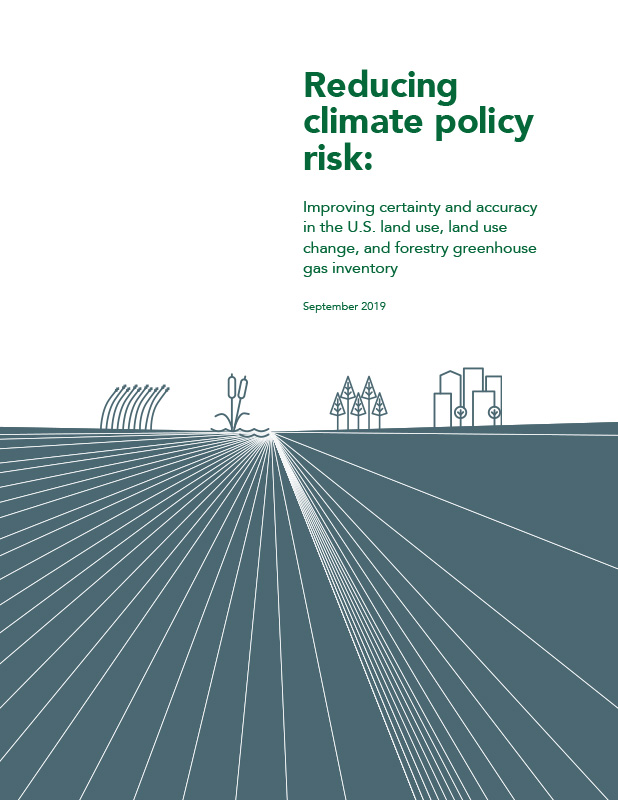
Doris Duke Charitable Foundation
Reducing Climate Policy Risk
This report identifies the largest sources of uncertainty and omitted greenhouse gas (GHG) fluxes in the land use, land use change, and forestry (LULUCF) sections of the U.S. National Greenhouse Gas Inventory (NGHGI). It provides recommendations for how to address the highest priority uncertainties and omissions. The report and underlying analysis was developed by CEA in partnership with partners and advisors.
-
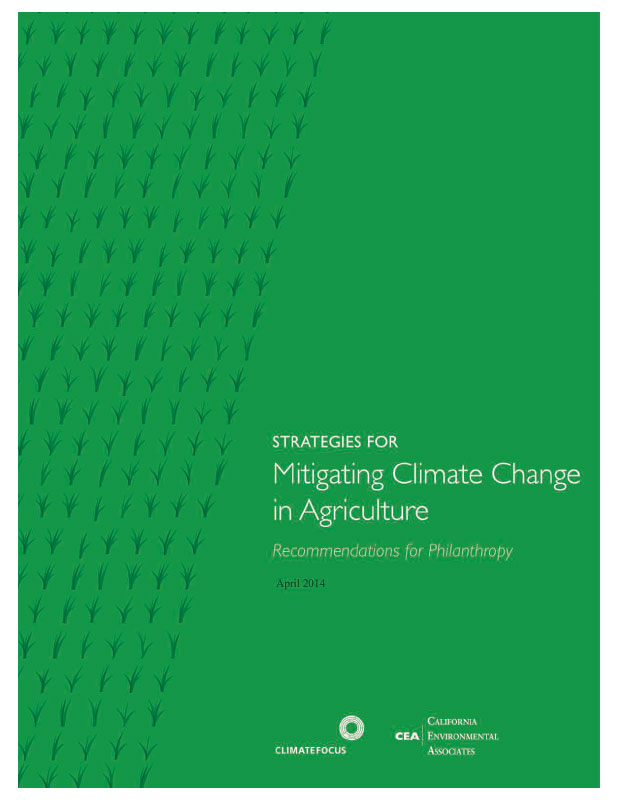
Climate and Land Use Alliance
Strategies for Mitigating Climate Change in Agriculture
This report, which CEA co-authored with Climate Focus on behalf of the Climate and Land Use Alliance, examined the global greenhouse gas mitigation potential of the agriculture sector. It presents a first-of-its kind global, meta-analysis for the sector.
-
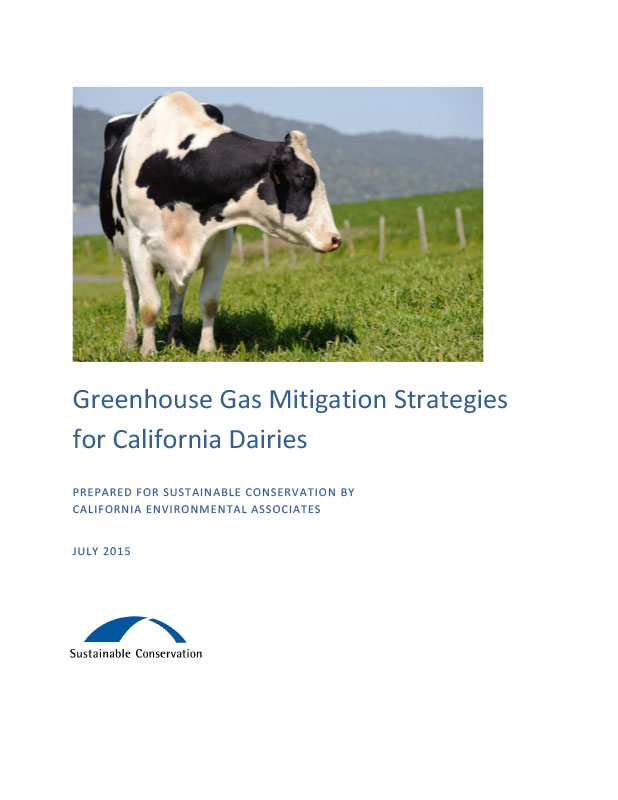
Sustainable Conservation
Greenhouse Gas Mitigation Strategies for California Dairies
In 2015, CEA worked with Sustainable Conservation, in partnership with both the California Air Resources Board (CARB) and the dairy industry, to further investigate the economic implications of various options to reduce methane emissions from California dairies in the context of California’s emerging Short-Lived Climate Pollutant Reduction Strategy.
-
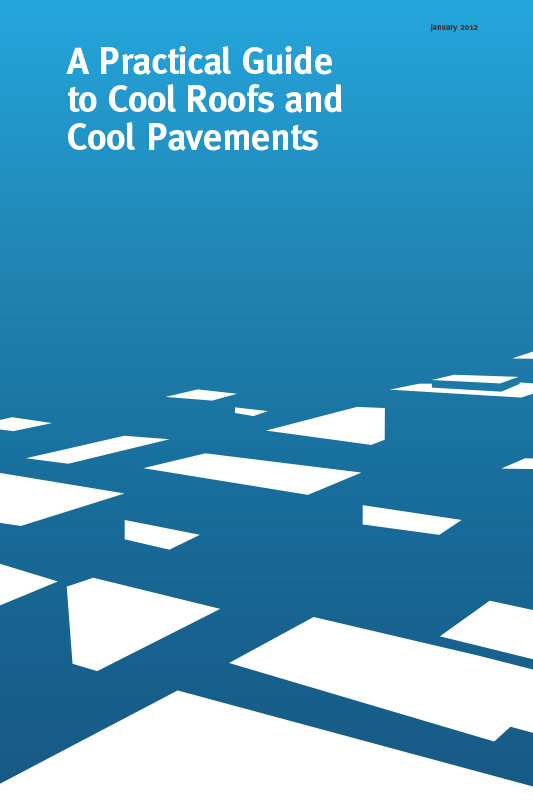
Global Cool Cities Alliance
A Practical Guide to Cool Roofs and Cool Pavements
From 2008 through 2014, CEA supported the scoping, launch, and development of the Global Cool Cities Alliance (GCCA). GCCA is a non-profit organization dedicated to accelerating a worldwide transition to cooler, healthier cities. In partnership with GCCA staff, CEA produced this “primer” to introduce a wide audience to the technical features and benefits of cool roofs and cool pavements.
-
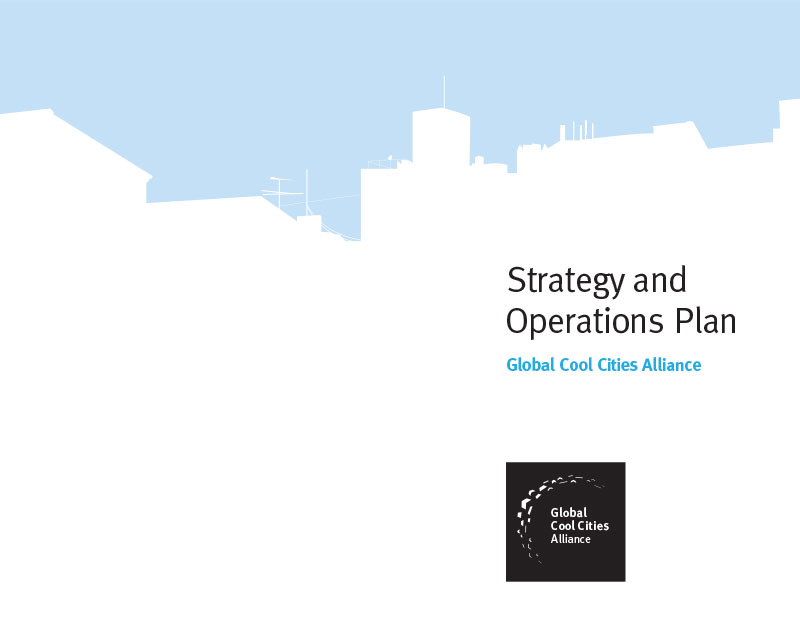
Energy Foundation, Global Cool Cities Alliance
Global Cool Cities Alliance: Strategy and Operations Plan
From 2008 through 2014, CEA supported the scoping, launch, and development of the Global Cool Cities Alliance (GCCA). GCCA is a non-profit organization dedicated to accelerating a worldwide transition to cooler, healthier cities. CEA authored this business plan as part of its role in incubating GCCA. CEA subsequently supported the search and hire of GCCA’s founding Executive Director and served as part-time staff support for several years.
-

The David and Lucile Packard Foundation, Doris Duke Charitable Foundation, Energy Foundation, Joyce Foundation, Oak Foundation, William and Flora Hewlett Foundation
Design to Win
This seminal report, authored by CEA in 2007, helped to launch the ClimateWorks Foundation. It was an early exploration of how philanthropy could have a greater impact on mitigating climate change. Using cost curves and other research, the “Design to Win” analysts ranked investments by their potential to reduce greenhouse gas emissions and their ability to prevent the “lock-in” of long-lived, carbon-intensive infrastructure.
-
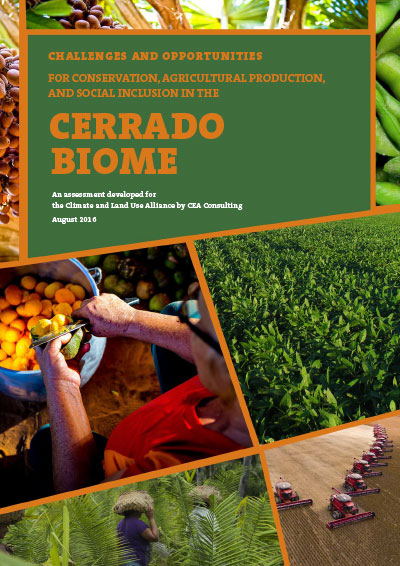
Climate and Land Use Alliance
Challenges and Opportunities for Conservation, Agriculture Production, and Social Inclusion in the Cerrado Biome
In 2015/2016, on behalf of the Climate and Land Use Alliance, CEA developed this assessment on the Cerrado Biome. The work was conducted in partnership with a Brazilian project manager and with guidance and input from several Brazilian civil society organizations and researchers. CEA also developed a set of strategic recommendations based on our research, designed to contribute to the development of CLUA’s emerging Cerrado strategy.
-
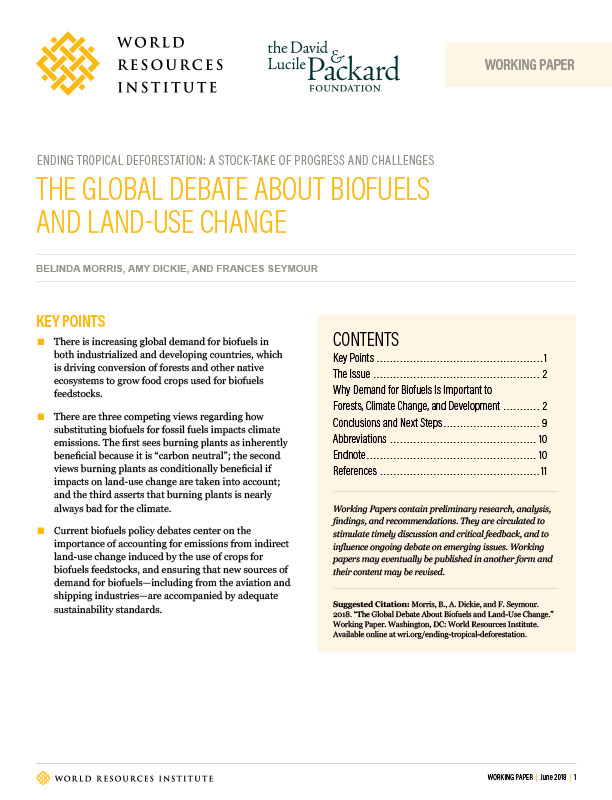
The David and Lucile Packard Foundation
Ending Tropical Deforestation: The Global Debate about Biofuels and Land-Use Change
In partnership with World Resources Institute and the David and Lucile Packard Foundation, CEA authored a working paper on the state of the biofuels industry and its links to tropical deforestation. This paper was published as part of the Oslo Tropical Forest Forum 2018.
-
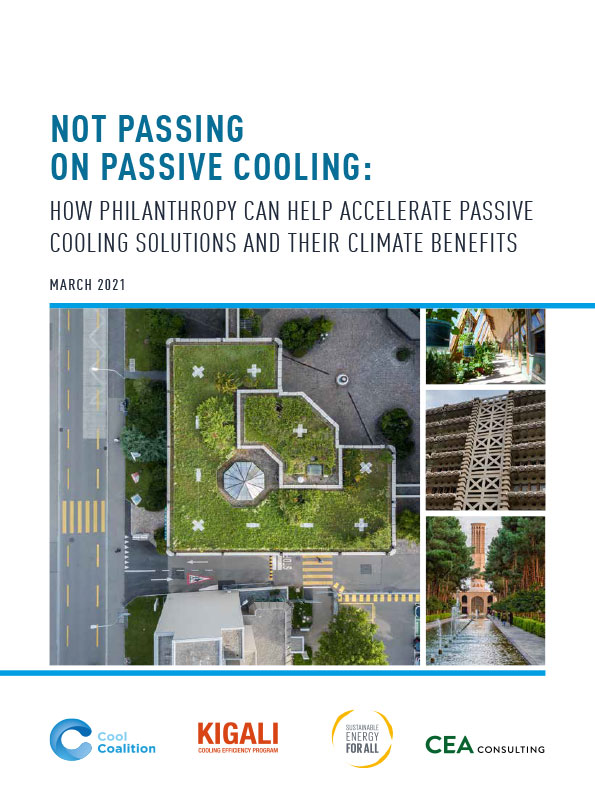
K-CEP
Not Passing on Passive Cooling
CEA produced this briefing in collaboration with K-CEP, Sustainable Energy for All, and Cool Coalition, to highlight the climate benefits of passive cooling solutions and to outline the role that philanthropy can play in accelerating their adoption.
-
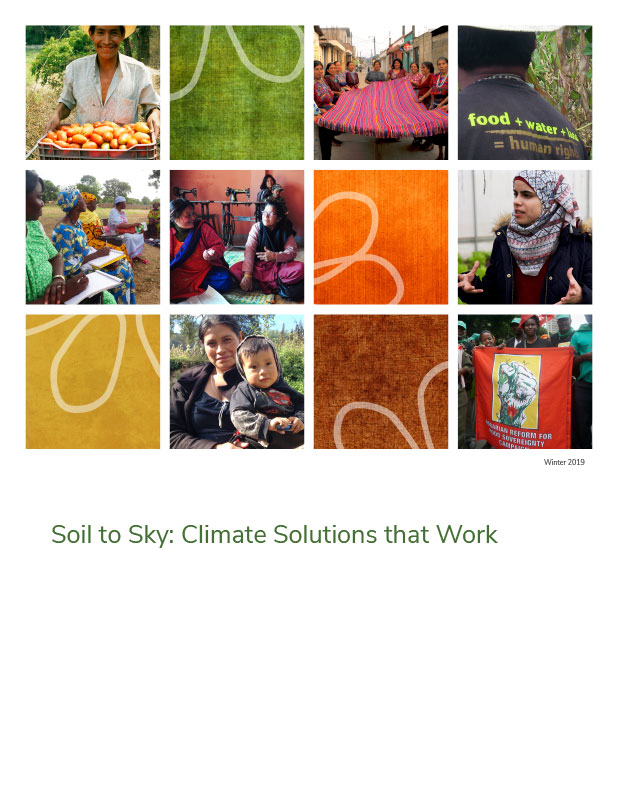
CLIMA Fund
Soil to Sky: Climate Solutions that Work
This report aggregates research on the use of grassroots solutions in addressing climate change. It was prepared by CEA Consulting on behalf of the CLIMA Fund (Climate Leaders in Movement Action). It is the first known attempt to quantify the contributions of grassroots solutions to climate change.
-
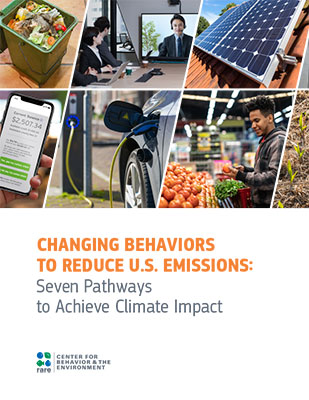
Rare
Changing Behaviors to Reduce U.S. Emissions: Seven Pathways to Achieve Climate Impact (2019)
In partnership with Rare, CEA conducted an analysis to identify the individual behaviors that have the greatest potential to reduce greenhouse gas emissions in the U.S.
-
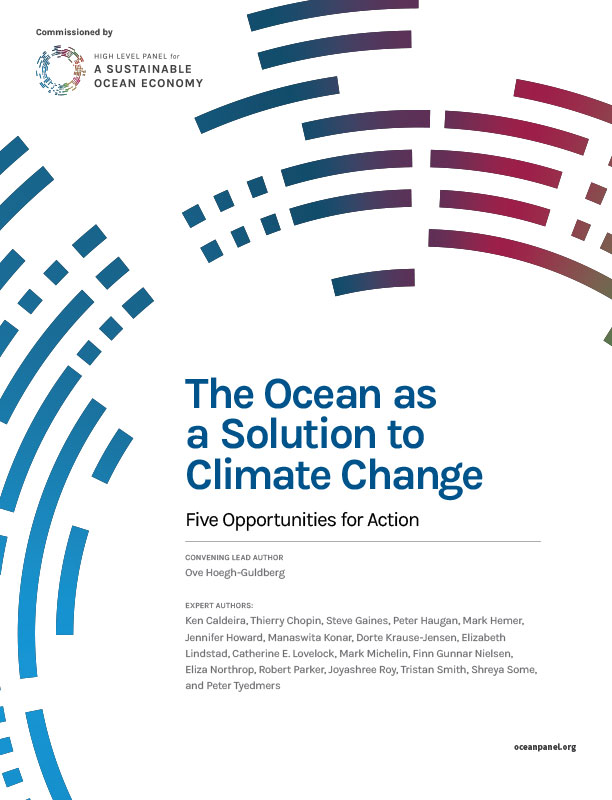
High-Level Panel for a Sustainable Ocean Economy
The Oceans as a Solution to Climate Change
In 2019, CEA contributed to a comprehensive, integrated assessment of the mitigation potential of a suite of ocean-based activities, in partnership with the High Level Panel for a Sustainable Ocean Economy.
-
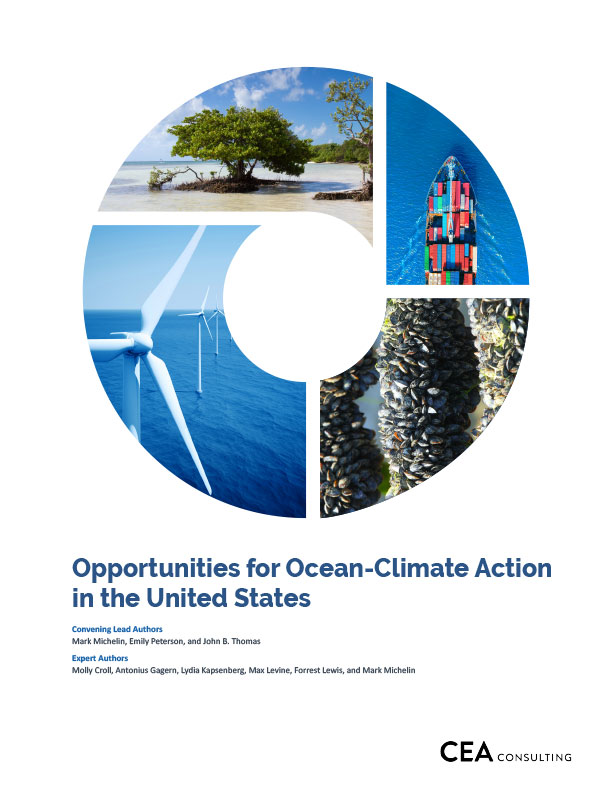
David and Lucile Packard Foundation
Opportunities for Ocean Climate Action in the United States: Summary for Policymakers
This report presents a first-ever quantification of the potential for ocean-based climate solutions in the United States. It provides a U.S.-level lens to build upon similar analysis conducted at the global level by the High Level Panel for a Sustainable Ocean Economy.
-
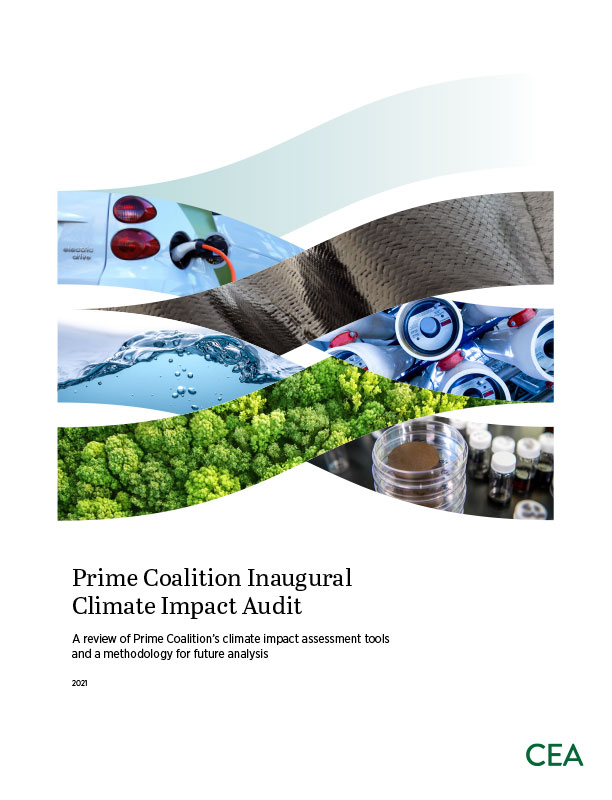
Prime Coalition
Inaugural Climate Impact Audit
In 2020, CEA served as the external partner to Prime Coalition to conduct their inaugural, third-party, climate impact audit. The initial audit focused on reviewing the impact assessment tools that Prime employs. The resulting report outlines high-level findings and presents the audit methodology.
